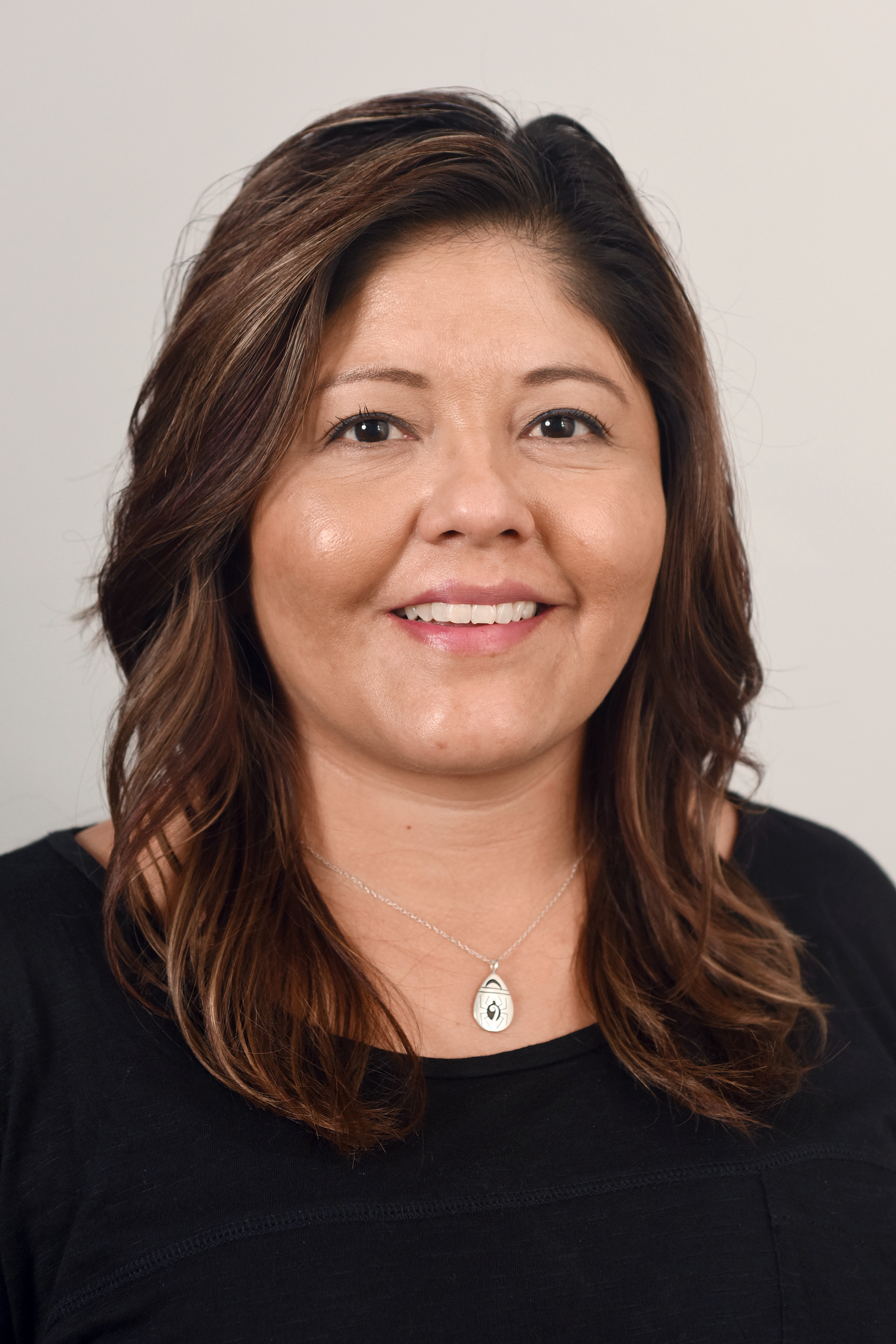
Charlene Poola is Hopi-Tewa and Navajo and has been a licensed mental health clinician since 2003. She is currently an adjunct instructor at New Mexico Highlands University School of Social Work where she teaches two graduate research methods courses. Charlene is also a current doctoral fellow with the Council on Social Work Education at Arizona State University.
Charlene was initially introduced to the MFP by her co-chair, Felicia Mitchell, Ph.D., who is an alum of the program and encouraged her to apply. As someone who already had years of experience as a mental health clinician, entering the MFP encouraged Charlene to investigate other academic opportunities that could enhance her research. She explained that as a woman of color, she had not previously been encouraged to do so, but she now feels empowered and hopeful in her ability “to do quality research to improve mental health disparities in marginalized communities,” thanks to the MFP.
Prior to joining the fellowship, Charlene envisioned herself at a tribal behavioral health program; however, after being exposed to other career opportunities, she has had a change of plans. She now hopes to apply for a tenure track faculty position “to do community-based participatory research with American Indian communities.” Charlene explained that this work is important because it “highlight[s] the strengths and resiliency factors to show how beautiful tribal communities are in this modern world.”
Regarding how the MFP mentorship has played a role in her career development, Charlene says that it has “helped build [her] confidence to ask more questions and introduce [herself] to folks [she] does not know to demonstrate that [she has] something to contribute to the conversation. The MFP mentors translated how to maneuver the academic job market with integrity and poise and how to utilize professional networks….”
When asked what career building advice she would offer current MFP fellows, Charlene had this to share: “Take the time to know other MFP fellows because you will see them in the future and possibly may work on a project or article together. Find MFP fellows that have similar teaching and/or research interests and discuss how you can collaborate on a project. This helps if you are seeking an academic faculty position because you can share challenges and successes from the field and the academy.”
And for anyone considering applying for the MFP, Charlene encourages them to seek alumni from their program so they can help with the application process and potentially provide a letter of recommendation.